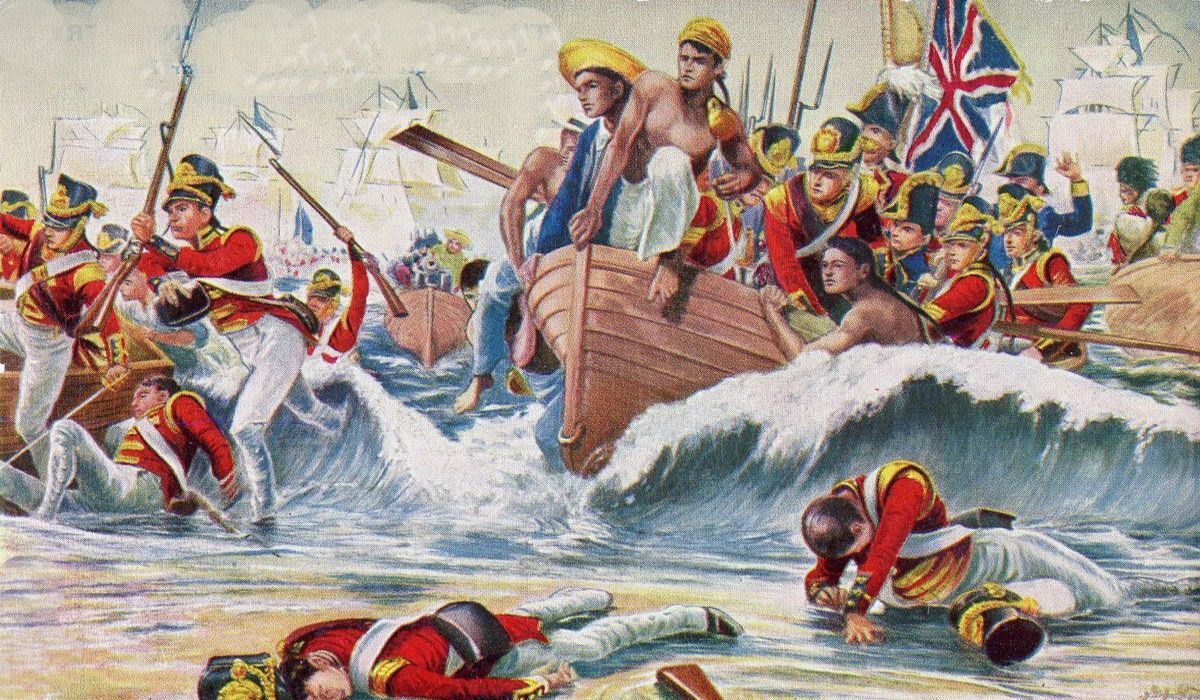
Did you know the Alexandria Expedition of 1807 was a British military campaign aimed at capturing the Egyptian city of Alexandria? This lesser-known event took place during the Napoleonic Wars and had significant implications for British and French interests in the Mediterranean. The British hoped to use Alexandria as a strategic base to control trade routes and counter French influence in the region. Despite initial successes, the expedition faced numerous challenges, including harsh weather, disease, and strong local resistance. Ultimately, the British forces withdrew, marking the expedition as a failure. Curious about more details? Here are 25 fascinating facts about this intriguing historical episode.
Key Takeaways:
- The Alexandria Expedition of 1807 was a British attempt to capture Alexandria, Egypt, but ended in failure. It boosted Ottoman confidence and indirectly helped Muhammad Ali rise to power in Egypt.
- The expedition had lasting effects on military tactics, diplomatic relations, and cultural memory, shaping modern history and geopolitics in the region.
The Alexandria Expedition of 1807: A Brief Overview
The Alexandria Expedition of 1807 was a significant military campaign during the Napoleonic Wars. British forces aimed to capture Alexandria, Egypt, from the Ottoman Empire. This expedition had far-reaching consequences for the region and the involved nations.
Key Players and Nations Involved
Understanding the main actors in this expedition helps grasp its complexity and importance.
- Britain: The British Empire sought to weaken French influence in the Mediterranean by capturing Alexandria.
- Ottoman Empire: Controlled Egypt at the time and was allied with Britain against Napoleon.
- France: Although not directly involved in this expedition, French influence in Egypt was a key reason for the British campaign.
- Muhammad Ali Pasha: The Ottoman governor of Egypt, who would later become a significant figure in Egyptian history.
Strategic Importance of Alexandria
Alexandria's location made it a valuable target for any empire looking to control the Mediterranean.
- Mediterranean Access: Alexandria provided a strategic port for naval operations in the Mediterranean.
- Trade Routes: Control of Alexandria meant dominance over crucial trade routes between Europe and Asia.
- Military Base: The city served as a potential military base for launching further operations in the region.
The Course of the Expedition
The expedition's timeline reveals the challenges and key events that shaped its outcome.
- Initial Landing: British forces landed near Alexandria in March 1807.
- Siege of Alexandria: The British laid siege to the city, facing stiff resistance from Ottoman forces.
- Battle of Rosetta: A significant battle where British forces suffered heavy casualties.
- Withdrawal: After several months of fighting, the British decided to withdraw in September 1807.
Consequences and Aftermath
The expedition had lasting effects on the involved nations and the region.
- British Losses: The failed expedition resulted in significant British casualties and loss of resources.
- Ottoman Strength: The successful defense boosted the Ottoman Empire's confidence and military reputation.
- Muhammad Ali's Rise: The expedition indirectly helped Muhammad Ali consolidate power in Egypt.
- French Influence: Despite the British attempt, French cultural and political influence in Egypt persisted.
Interesting Tidbits and Lesser-Known Facts
Some lesser-known details about the expedition add depth to our understanding of this historical event.
- Disease Outbreak: Many British soldiers succumbed to diseases like dysentery and plague.
- Local Support: Some local Egyptian factions supported the British, hoping to overthrow Ottoman rule.
- Naval Challenges: The British navy faced difficulties due to poor weather and unfamiliar waters.
- Cultural Exchanges: The expedition led to some cultural exchanges between British and Egyptian societies.
- Economic Impact: The campaign disrupted local economies, affecting trade and agriculture in the region.
Legacy of the Alexandria Expedition
The expedition's legacy can be seen in various aspects of modern history and geopolitics.
- Military Lessons: The British learned valuable lessons about desert warfare and logistics.
- Diplomatic Relations: The expedition influenced future British-Ottoman diplomatic relations.
- Historical Narratives: The event is often cited in discussions about colonialism and imperialism in the Middle East.
- Archaeological Interest: Modern archaeologists have shown interest in the sites related to the expedition.
- Cultural Memory: The expedition remains a part of Egyptian and British cultural memory, reflected in literature and historical studies.
Final Thoughts on the Alexandria Expedition of 1807
The Alexandria Expedition of 1807 stands out as a pivotal moment in history. It showcased the tensions between Britain and the Ottoman Empire, highlighting the strategic importance of Egypt. The expedition also underlined the complexities of international diplomacy and military strategy during that era. Despite its failure, the expedition had lasting impacts on British and Ottoman policies. It’s a reminder of how historical events shape the world we live in today. Understanding these facts helps us appreciate the intricacies of global politics and the lessons learned from the past. The Alexandria Expedition remains a fascinating chapter in history, offering valuable insights into the dynamics of power and conflict.
Frequently Asked Questions
Was this page helpful?
Our commitment to delivering trustworthy and engaging content is at the heart of what we do. Each fact on our site is contributed by real users like you, bringing a wealth of diverse insights and information. To ensure the highest standards of accuracy and reliability, our dedicated editors meticulously review each submission. This process guarantees that the facts we share are not only fascinating but also credible. Trust in our commitment to quality and authenticity as you explore and learn with us.
